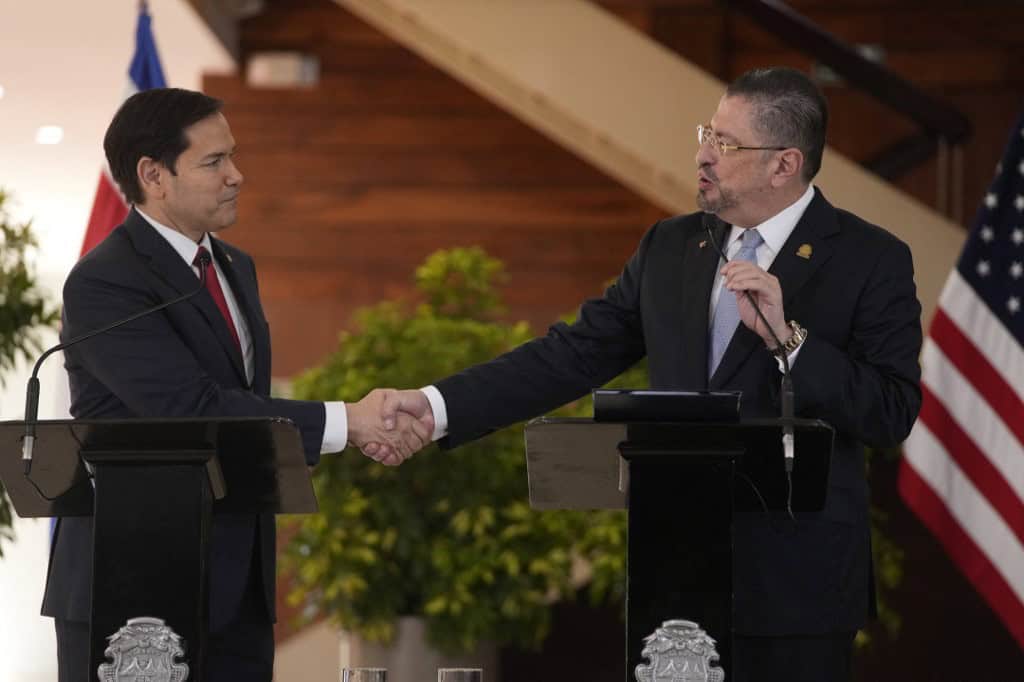The agreement that allowed Costa Rica to receive 200 migrants deported by the U.S. government was verbal, according to Foreign Minister Arnoldo André, who spoke before deputies on Wednesday. After weeks of debate over the existence of a formal document, the country’s top diplomat acknowledged that the agreement was negotiated orally and that the only written record consists of diplomatic correspondence exchanged with the U.S. government.
“The agreement that formalized Costa Rica’s decision was unwritten and established through correspondence between both countries,” André explained. “It allowed for a maximum of 200 third-country nationals to be sent to Costa Rica, with the U.S. covering their maintenance, repatriation costs, and assistance in relocating them to safe third countries if needed.”
André addressed concerns from lawmakers regarding the Executive Branch’s refusal to disclose details of the agreement, which facilitated the reception of 200 individuals—including elderly persons and children—who had been deported by the Trump administration.
A key question raised by the opposition is why Costa Rica agreed to receive these migrants and why the United States did not complete the deportation process from its own territory. In response, André said that this is a matter for the U.S. government to explain but reiterated that Costa Rica was simply “cooperating with an ally” that provides more than $100 million in annual assistance.
“Costa Rica gains the goodwill of an ally by complying with an express request,” André stated. He asserted that the rights of the individuals received have not been violated and that the country’s sovereignty remains intact, as the government accepted them “voluntarily” and “for the sole purpose of providing temporary humanitarian treatment while seeking a solution within 30 days.”
When asked why these individuals remain detained at the Centro de Aprehensión Temporal para Extranjeros en Migración (CATEM) without the possibility of free movement—despite not being accused of any crime in Costa Rica—André cited Minister of Security Mario Zamora, who explained that all of them hold a deportable status, which prevents them from freely transiting the country.






